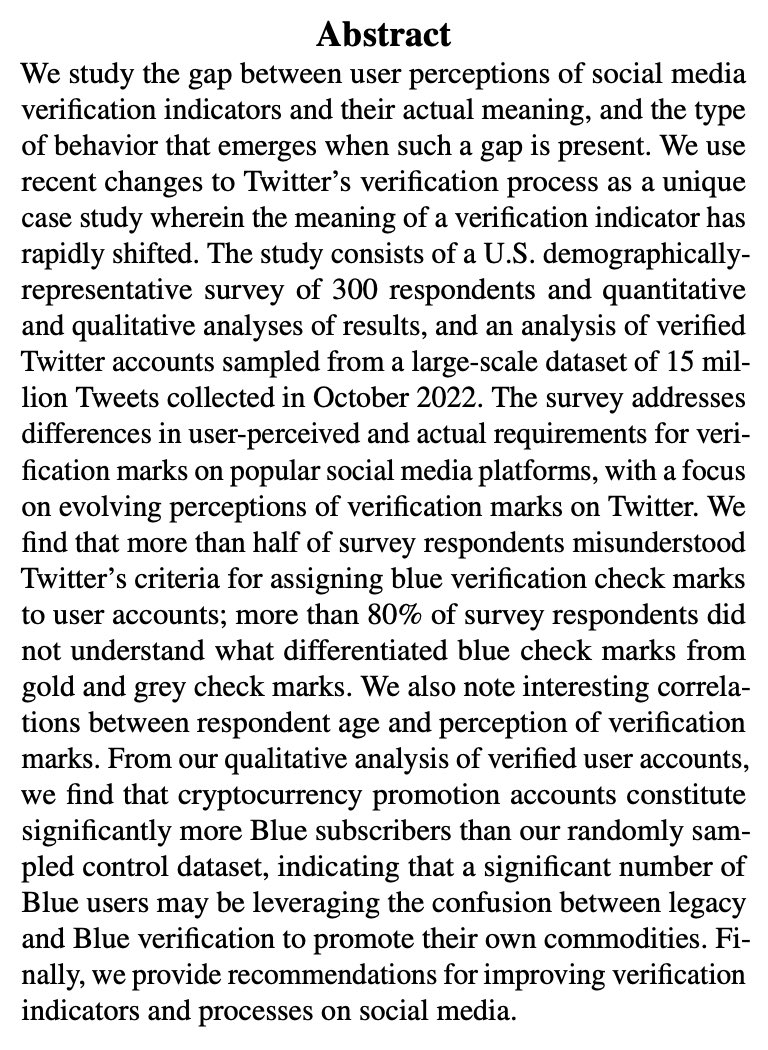
@Princeton prof and tech + law person. Previously at the Senate, @FCC, @Stanford, and CalDOJ.
How to get URL link on X (Twitter) App


 In a nationally representative survey (n=300), most people believe a Twitter blue check requires actual verification of a person’s identity, not just a working phone number and payment. That misunderstanding is more common among older people & people with lower digital literacy.
In a nationally representative survey (n=300), most people believe a Twitter blue check requires actual verification of a person’s identity, not just a working phone number and payment. That misunderstanding is more common among older people & people with lower digital literacy.
